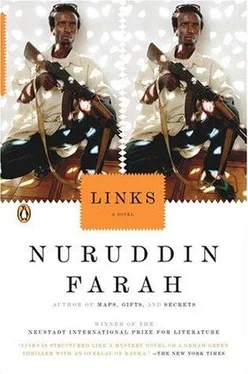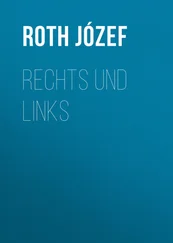Jeebleh knew then that he would leave soon, without his friends’ knowing. He would fly to Nairobi to relax for a couple of days, and from there call Bile and Seamus to inform them of the decision to depart — but not why. Then he would book himself on a home-bound flight and, not wanting to tempt fate, get to New York before impulse propelled him in another direction.
Some people hate saying good-bye, some cannot bear to say arrivederci. Jeebleh assured himself that he loved his friends enough and that they loved him. He knew that they would visit one another, welcome one another into their homes, and into their stories. He and his friends were forever linked through the chains of the stories they shared.
LATE THAT NIGHT, TUCKED IN BED AND FLANKED BY THE TWO GIRLS, JEEBLEH listened to Raasta tell a folktale.
An ape, finding the throne empty, takes the crown, puts on the robes of the king, and begins to reign. A wildcat convokes the other beasts. These come and heap praises on the new king. Not so the fox, who plots to unseat the impostor. To this end, he gathers luscious fruits, the kind that apes kill or die for, and gives them all to the king. Excited, the ape leaps from his throne, jumping up and down, and to satisfy his insatiable gluttony, surrenders his weighty crown.
Amused, the fox addresses the gathering. He tells the other animals that donning the robes of a king has never made a monarch of a flunky.
And the ape is unseated!
Jeebleh quit Mogadiscio the following morning, without changing his clothes, though he did introduce yet a further modification: he put on clean underpants and clean undershirt.
Bile, Seamus, Raasta, and Shanta learned of his departure only later in the day. He left before the mist in his mind cleared, afraid that he might alienate his friends, to whom he owed his life. He left as soon as he sensed the sun intruding on the horizon of his mind.
This is a work of fiction, set against the background of actual events that took place in Mogadiscio. The characters and the incidents they are involved in, however, stem from my imagination, and any resemblance to actual persons, living or dead, is purely coincidental.
To write Links, I benefited from speaking to a great many Mogadiscians, and from reading hundreds of documents, and numerous periodicals and books. I am grateful to all of those I spoke to, and to the authors whose writings I read. Needless to say, I covered all borrowings with skin of my own manufacture.
The epigraphs at the beginning of the book are from Michel Tournier’s The Ogre (translated by Barbara Bray; Pantheon, 1984); The Standard Edition of the Complete Psychological Works of Sigmund Freud (translated by James Strachey, 1940–1968); and William Blake’s Auguries of Innocence. The part-title epigraphs are from Allen Mandelbaum’s translation of Dante’s Inferno (Bantam, 1982): for Part 1, from canto III, lines 1–18; canto X, lines 25–42; and canto XXIII, line 144; for Part 2, with slight modification, from canto XIV, lines 16–26, and canto XXIV, lines 88–93; for Part 3, from canto XI, lines 37–54, and canto XXVIII, lines 1–6; for Part 4, from canto XVII, line 31; and for the epilogue, from canto XX, lines 124–130.
The play alluded to in chapter 1 is Carl Zuckmayer’s Der Hauptmann von Köpenick. The biblical quotations “Deliver me from blood-guiltiness. .” and “The sun shall be turned. .” in chapter 8 are from Psalms 51:14 and Joel 2:31, respectively. The remark “We fed them, they got strong. .” in chapter 25 is attributed to Major David Stockwell, U.S. Army, UN military spokesman, and is quoted in Keith B. Richburg’s Out of America (Basic Books, 1997, page 60). The comment attributed to Osip Mandelstam in chapter 26 is from The Oxford Dictionary of Literary Quotations, edited by Peter Kemp (Oxford University Press, 1999). The two quotations from Thomas Jefferson in the epilogue are from letters to, respectively, James Madison (January 30, 1787) and W. S. Smith (November 13, 1787).
I found the following invaluable: Sheekoxariirooyin Somaaliyeed, a bilingual Somali — English edition of Somali folktales by Axmad Cartan Xaange (Somali Academy of Sciences & Arts / Scandinavian Institute of African Studies, 1988); The Somali Challenge, edited by Ahmed I. Samatar (Lynne Rienner, 1994); Blood Money by Trisha Stratford (Penguin, New Zealand, 1996); Dante’s Inferno by Mark Musa (Indiana University Press, 1995); and Black Hawk Down by Mark Bowden (Atlantic Monthly Press, 1999).
A number of good friends have been of enormous help, in particular Maxamad Aden Gulaid a.k.a. Caana-geel, Ahmed “Washington” Mohamoud, Lidwien Kapteijns, Tom Keenan, Miki Goral, and David Knowles of Ledig House, where I stayed for three weeks while working on an earlier draft of the novel.












